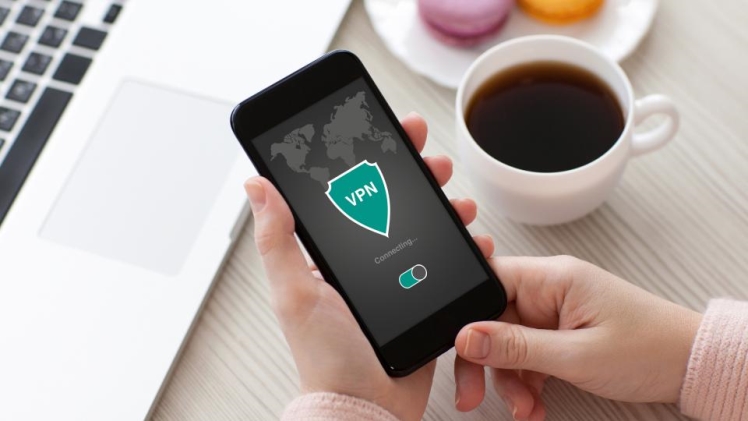Is it possible for the government to find you online if you use a VPNLab? The answer to that question depends on which VPN service provider you’re using and what the government’s standards are. Although most websites use netlogs to protect your privacy, the government can still seize your mobile devices or computers. It can also analyze the data in your crypto transactions. In short, no VPN is completely secure.
LabVPN
A popular tool for cyber criminals to hide from the authorities, labatidora was used by cyber attackers to communicate behind ransomware campaigns. Founded in 2008, LabVPN provided users with virtual private network services through the dark web, at a cost of around sixty US dollars per year. These services allowed users to remain anonymous while online and were closely associated with ransomware campaigns, which encrypt user information until a ransom is paid.
NordVPN
The reauthorization of the Patriot Act has enabled law enforcement agencies to look into our browsing histories without a warrant. However, not all VPNs are private and secure. While police can track our online activities, live encrypted VPN traffic cannot be tracked. Even so, they can get connection logs from ISPs and direct them to us. In other words, a VPN like panoramio VPN is impossible to track, because it has a no-log policy.
Can the FBI find you if you use a vpnlab? According to the latest investigation, Europol and 10 countries collaborated to seize 15 servers operated by a different VPN provider. The defunct VPNLab served mainly cybercriminals. The FBI is still trying to find out whether its users were involved in the shady activities. The answer to this question depends on the type of VPN you use.
OpenVPN
Recently, a company called VPNLab was shut down for a variety of reasons, including its links to illegal activity. The tinypic service used 2048-bit encryption and promised total anonymity for $60 a year. The company had connections in many countries, making it appealing to cybercriminals who needed more privacy. As such, the FBI’s sting operation was coordinated with Europol. In all, it seized servers in the UK, France, Czech Republic, and Germany.
Although you might not think so, the FBI can access your browsing history if it wants to. While most websites employ fullmaza encryption, it is possible for law enforcement to access this data without a warrant. Even if you don’t use an encrypted VPN, your ISP can still monitor your web activity. If your internet provider knows that you’re online, they can use that information to determine who you are. If they can’t find you using a VPN, your internet service provider may have to turn over information.
2048-bit encryption
VPNLab, a company that provides virtual private network services via the Dark Web, was shut down today. The service, which was launched in 2008, used 2048-bit encryption and promised full anonymity. Its services cost $60 per year and are available in a wide range of countries, which is advantageous to criminals who rely on VPNLab to remain anonymous. The company’s servers were also located in several different countries, offering relative proximity to various cybercrimes across the world.
This encryption method makes it very difficult for the FBI to access your information and to follow up on any investigations. Data encrypted at 2048-bits cannot be read by the FBI without a password. Even if the FBI managed to crack some of the data on those devices, they would be unable to do so. With this, VPNLab is the best option to avoid potential problems. The company uses 2048-bit encryption to keep your data safe from hackers, as well as from the FBI.
Using a VPN to commit cybercrimes
When you use a VPN, your internet activity is encrypted, making it nearly impossible for anyone to spy on you or steal your information. Identity theft, for example, ranks fourth on the list of the most common cyber crimes. More recently, however, harassment and stalking have been observed on the Internet. This is because a social engineer can pose as a trustworthy individual to gain access to personal data. The aim of these crimes is to make money or gain access to administrative controls.
Although VPNs are 100 percent legal in most countries, some people still use them to commit cybercrimes. Even though VPNs are perfectly legal in most countries, they cannot be used to hide your online activity from law enforcement. They are designed to keep you safe from identity theft, but they can also violate streaming services’ terms of service. If you use a VPN to commit cybercrimes, be sure to consult a legal professional before using one.
Can the FBI find you if you use a VPNLab
VPNs protect your online privacy. However, they cannot stop the government from tracking you. In fact, they can access your browser history without a warrant. Your ISP will also be able to see what websites you visit, since they keep a log of your traffic. While VPNs prevent ISPs from spying on you, they may not be the only thing that the FBI is looking for.
Conclusion
VPNLab, an online privacy service, shut down its website today. It was popular among cybercriminals because of its guarantee of anonymity. The service’s network of servers was located in different countries and offered relative proximity to cybercriminals worldwide. However, the FBI has been working to identify victims and threat actors using the service. As a result, they have identified 100 organizations as being a target of the service.
